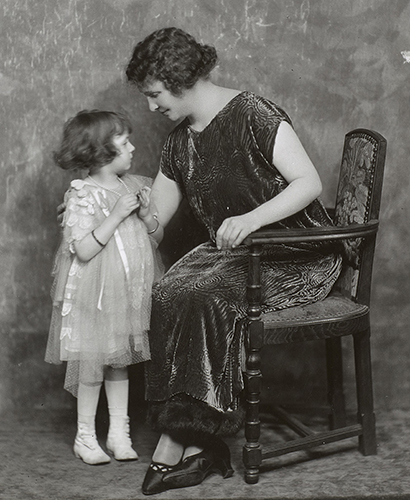Over the past two years, with generous funding from the National Endowment for the Humanities (NEH), the American Foundation for the Blind (AFB) has digitized a vast portion of the over 80,000 items in Helen Keller’s unique and irreplaceable archive. 160,000 digital images have been created, and by December of this year will be accessible online to blind, deaf, deafblind, sighted, and hearing audiences around the globe.

Funding from the NEH recognized the ground-breaking nature of AFB's commitment to full online accessibility as well as the wisdom of digitizing this important collection, preserving access to the history of one of the world's foremost champions for the rights of people with disabilities.
The Helen Keller Archive is the world’s largest repository of materials by and about Helen Keller. The collection includes her letters, speeches, press clippings, scrapbooks, photographs, architectural drawings, and priceless artifacts, many of which she received as gifts during her travels to 39 countries.
These materials span from 1880 until after her death in 1968—from Alexander Graham Bell to President Lyndon B. Johnson. The archive includes materials from nine U.S. presidents as well as leading figures such as Mark Twain, Albert Einstein, and Eleanor Roosevelt, to name just three. The collection also includes letters from ordinary men, women, and children, sighted and not, who corresponded with Keller from around the globe and whose stories have never been told.
AFB’s odyssey to preserve Helen Keller’s collection is well under way. Our goal is no less ambitious than to pioneer the most accessible archive in the world. Students who are blind or visually impaired will be able to explore primary sources in a whole new way. Teachers will be able to create curricula and share them with their classrooms, and other educators. AFB staff is attending conferences to bring greater awareness to Helen Keller's collection and to inspire other organizations to provide complete online access to their archives and historical materials. If other organizations follow our lead, there is no limit to what historians and researchers will be able to do.
But our work is not done. Items comprising over 34,000 digital images must be photographed, preserved, and made accessible through the creation of metadata.
How You Can Help
With the future of NEH funding uncertain, we need your help. Helen Keller's history belongs to everyone.
In light of the President's proposed budget that would eliminate NEH funding, please speak up in support of the critical role that the NEH plays in promoting the nation's, and indeed the world's, cultural heritage. Call your U.S. Senate and House members, and tell them you support the continued work of the NEH to make our national treasures, like the Helen Keller Archive, available to all.
And make a donation today to help us complete this important project, and preserve access to the Helen Keller Archive!
